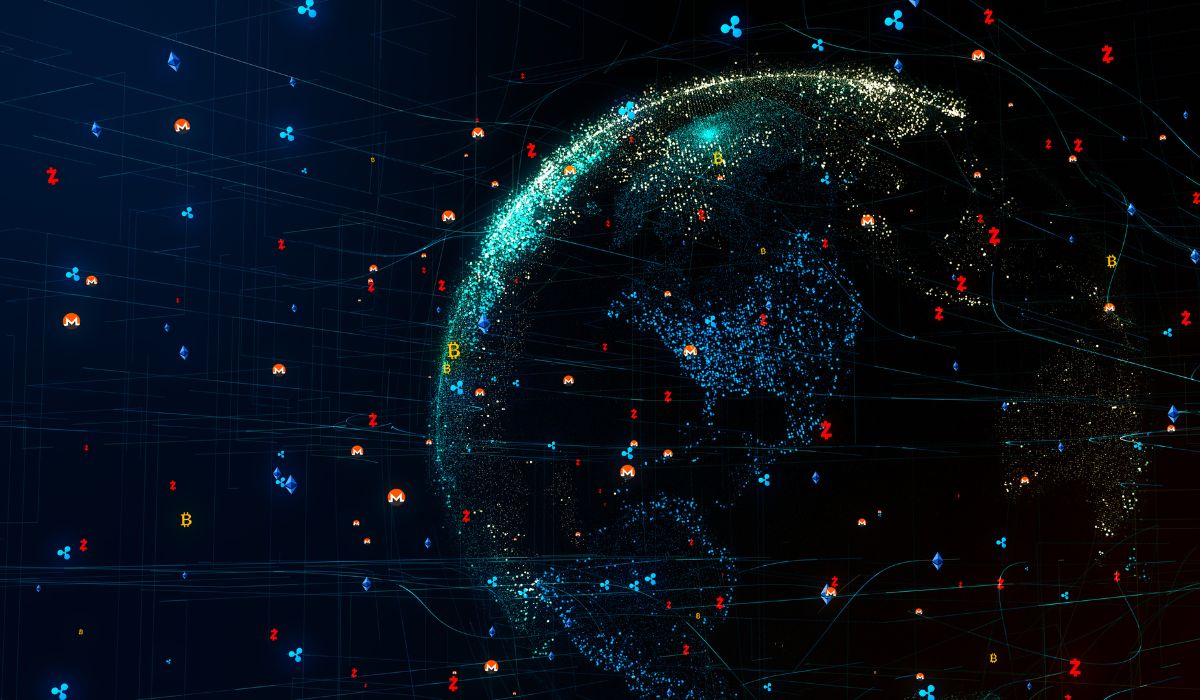With Guardians, Orbs Takes To Decentralization To The Extreme: Here’s How You Can Participate
1
0

A decentralized network is one in which no single stakeholder is able to exert control, and it’s an essential tenet of most cryptocurrencies. Blockchains are run by distributed nodes, with validators and miners dispersed across the globe. Yet, these participants still have the power to influence the network if they’re not kept in check.
Most network validators act for the greater good, honestly verifying transactions and publishing blocks. However, it’s possible that such an entity might not act in the best interests of the network. As such, blockchains can benefit from a way to validate the actions of their validators, and one of the best methods of doing this is through the implementation of network Guardians.
The Role Of Guardians
Guardians are a unique concept within the “Proof-of-Stake” network Orbs, and they perform the task of monitoring participants to ensure everyone is playing by the rules. By reviewing the performance of each validator on an ongoing basis, Guardians play a key role in maintaining fairness. They make sure every validator is acting in an ethical way and have the ability to eject those who are not.
The major advantage of using Guardians is that they allow for everyone in the community to play a part in ensuring network fairness. Although the role is restricted to the most active users, everyone else can participate by delegating their stake to a Guardian of their choice.
Should the Guardians identify a validator who is misbehaving, they have the ability to vote on whether or not to boot that misbehaving entity out of the network and replace it with a new one. In this way, they help to keep tabs on the very people who are supposed to ensure the integrity of the network.
Guardians perform other roles besides acting as a kind of network police, for they’re also encouraged to attend meetups and other community events, make proposals on the network’s future and foster discussions around these ideas.
Choosing A Guardian
As such, each community member needs to choose very carefully when selecting which Guardian they should delegate their stake to. There are a number of considerations that users should take into account when making their choice, and these are outlined below.
Capacity:
Probably the single most important consideration is the Guardian’s capacity. Guardians must demonstrate their commitment to the network by putting their money where their mouth is, and to encourage this they’re incentivized to self-stake a minimum of 8% of their total delegated stake. In other words, no matter how many ORBS tokens are delegated towards them, at least 8% should be delegated by the Guardian themselves.
If a Guardian fails to meet this requirement, they won’t be eligible to earn the full staking rewards, which means those who delegate their stakes to them will also miss out.
Luckily, delegators have an easy way to check each Guardian is fulfilling this requirement by checking the “Capacity” column on the Guardians webpage. Should their capacity be listed as 100% or greater, this means the Guardian doesn’t have enough self-staked tokens, and any further funds delegated to it will not increase its overall stake, or the rewards it receives. So there’s no point delegating any Guardian that has already reached 100% capacity.
Instead, delegators should look to back a Guardian whose capacity is less than 100%, as this will mean their total stake increases at the expense of the other Guardians, increasing their share of the rewards.
Performance & Reputation:
Besides looking at the capacity of each Guardian to accept new delegates, users will also want to look at the overall performance and reputation of each one. For instance, Guardians are required to operate and maintain a node that’s running the latest version of the Orbs blockchain, which can be checked by visiting the Orbs Network Status page. Assuming everything is green, that means the Guardian is indeed keeping up to date.
The Guardian’s reputation and level of activity within the community is another factor. Establishing this will require a little more homework on the part of the delegator. A good starting point would be the official Orbs Telegram channel, where they can read through older posts and ask other community members for their opinions. They can also check out other social media channels, and try to identify those Guardians who actively participate in discussions.
Other things to consider include the Guardian’s own website and community. The most serious Guardians will join the Orbs Certified Committee to demonstrate their commitment to the network, and one of the requirements for doing so is that they must create their own website with basic information. Prospective delegators are strongly encouraged to check out these websites and see for themselves which Guardians take their jobs seriously.
Decentralization:
Delegators will want to be mindful of decentralization too, because it may not be a good idea to back a Guardian if they have already accumulated significant power over the network. Users can check the Orbs Universe Analytics tool to view the current network stake distribution among Guardians, and perhaps consider backing one with a lower stake to ensure balance within the community.
Other Factors
In a blog post, Orbs Director of Markets and Communities Eran Peled explains that delegators should also consider Guardian’s rewards distribution ratio and community participation as a matter of priority, but in reality these are not quite as important. A quick look at the Guardians webpage shows that all of the top Guardians offer the maximum rewards ratio of 67% to attract delegates, and the vast majority also maintain their participation in the elected committee.
Even so, delegators should be mindful of these requirements as Guardians can change their rewards ratio at any time, and it’s possible their committee uptime could also drop. So, before selecting a Guardian, be sure to confirm these by visiting the Guardians webpage.
Conclusion
The use of Guardians ensures that validators within the Orbs network are held to much higher standards than those on other blockchains. The community is much more involved in securing the network, as everyone can delegate ORBS tokens to the Guardian of their choice, and ensure that these key participants are acting in their best interests. As such, Orbs can claim to be among the most decentralized networks in the entire blockchain industry.
Guardians play an essential role in securing the Orbs network while simultaneously giving everyone in the community a way to get involved, and all Orbs users are encouraged to contribute towards this process.
1
0
 Manage all your crypto, NFT and DeFi from one place
Manage all your crypto, NFT and DeFi from one placeSecurely connect the portfolio you’re using to start.






